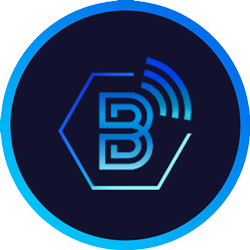In today's fast-paced business world, making a memorable first impression is essential. Traditional paper business cards have served as a staple for networking, but as technology continues to advance, the way we exchange contact information is evolving. NFC (Near Field Communication) business cards are at the forefront of this change, revolutionizing the way professionals connect and share information. In this article, we'll explore NFC business cards, what makes them special, and how they're transforming the networking landscape.
What are NFC Business Cards?
NFC business cards are a modern take on the traditional paper business card. They incorporate Near Field Communication technology, which allows for contactless data transfer between devices when they are brought into close proximity, typically within a few centimeters.
These smart business cards are equipped with an NFC chip, which stores your contact information, website links, or other data you wish to share. When someone taps their NFC-enabled smartphone or device on your card, it automatically transfers the stored information, eliminating the need for manual data entry.
The Advantages of NFC Business Cards:
Convenience: NFC business cards offer a hassle-free and quick way to exchange contact information. There's no need to fumble with paper cards or rely on QR codes.
Environmental Benefits: Going digital with NFC business cards reduces the need for paper production, contributing to a more sustainable and eco-friendly approach.
Always Updated: With traditional business cards, your information can become outdated quickly. NFC business cards allow you to update your details in real-time, ensuring accuracy.
Versatile: These cards can store various types of data, from basic contact information to links for social media profiles, websites, or even portfolios.
Memorability: The novelty of NFC business cards can leave a lasting impression on those you meet, making you more memorable in networking situations.
How NFC Business Cards Work:
NFC technology operates on a simple principle – when two devices with NFC capabilities come into close proximity, they can establish a connection. In the context of NFC business cards:
Programming: NFC business cards are programmed with the desired information using a smartphone app or dedicated software.
Sharing: When you meet someone and want to share your contact information, you tap your NFC business card to their NFC-enabled device. This touch initiates the data transfer.
Receiving: The recipient's device receives the data and may prompt them to save it in their contacts or open a web link, depending on the type of information shared.
Types of NFC Business Cards:
There are various types of NFC business cards to suit different preferences and budgets:
Standard NFC Business Cards: These are plastic or paper cards with an embedded NFC chip. They function just like traditional business cards but offer the convenience of NFC data transfer.
USB NFC Business Cards: These cards are shaped like USB drives and can be inserted directly into a computer's USB port for data transfer. They can also be tapped to a smartphone for contactless sharing.
Smartphone Apps: Some professionals prefer to use NFC business card apps that generate a digital NFC card on their smartphones. To share information, they simply tap their phone to the recipient's device.
Interactive NFC Business Cards: These cards can be programmed to perform specific actions on the recipient's device, such as opening a web link, dialing a phone number, or sending an email.
Tips for Using NFC Business Cards Effectively:
Explain How They Work: When sharing your NFC business card, explain the process to the recipient, especially if they're unfamiliar with this technology.
Keep Your Information Updated: Regularly update the information stored on your NFC business card to ensure accuracy.
Use NFC Business Card Apps: If you opt for a smartphone app, choose one that allows you to customize the information you share and provides analytics to track engagement.
Embrace Customization: Make your NFC business card stand out by customizing its design, making it memorable and aligned with your personal brand.
Ensure Compatibility: Check if the recipient's device is NFC-enabled. Most modern smartphones support NFC, but it's always a good idea to confirm.
The Future of Networking:
NFC business cards are part of a broader shift toward digital and contactless networking. As professionals increasingly rely on digital platforms and mobile devices, the convenience and efficiency of NFC technology are likely to become even more relevant.
These smart business cards also pave the way for innovative and interactive networking experiences. With the ability to program actions like opening a personalized landing page or initiating a phone call, NFC business cards can help you leave a lasting impression on potential clients, collaborators, or employers.
Environmental Impact:
One notable advantage of NFC business cards is their positive environmental impact. Traditional paper business cards often contribute to paper waste, with countless cards discarded or forgotten. By switching to NFC business cards, you reduce the need for paper production and minimize the environmental footprint of your networking efforts.
For More Info:-





Comments